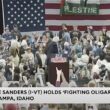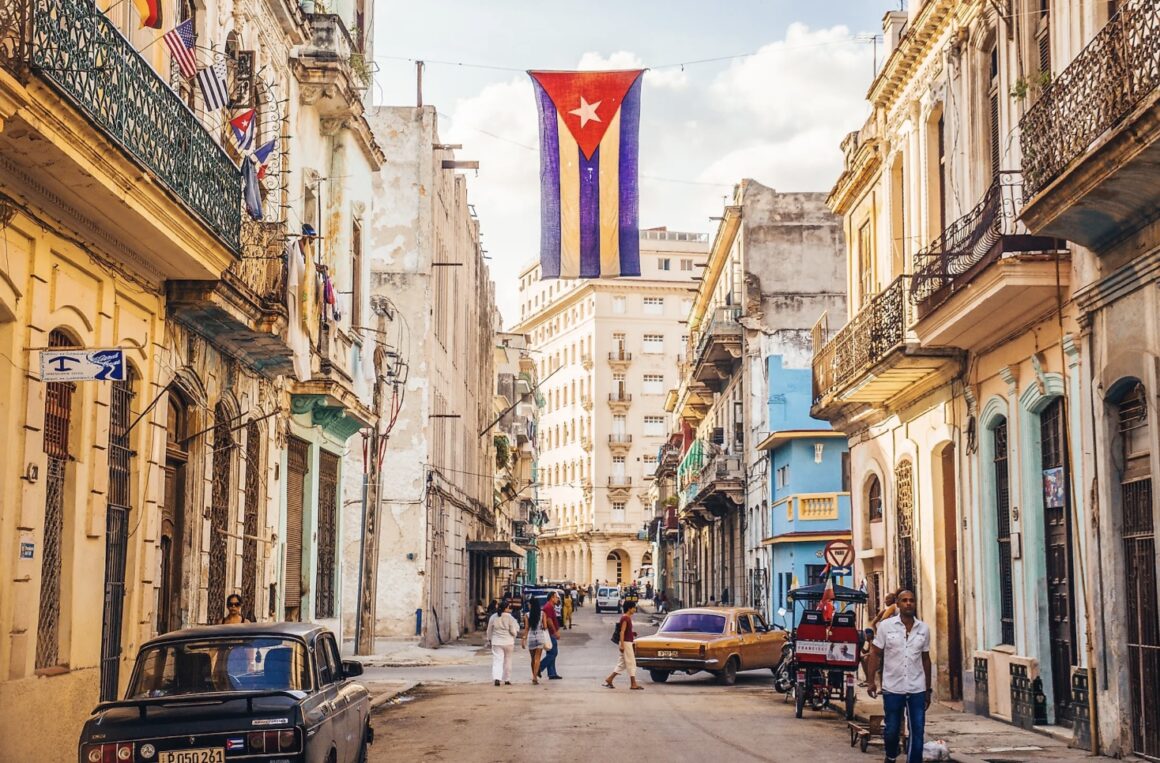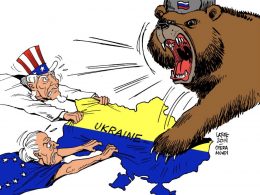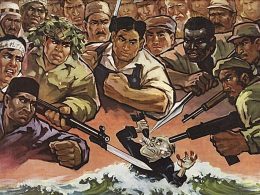In this response to recent comments that Jackson Hinkle has made about Cuba, I want to first state the central basis for why I defend Cuba, all the other socialist states, and anti-imperialist countries in general. I don’t defend them because I believe it’s my job to portray them as perfect, because each government is flawed in some way or another. I defend them foremost because where I am now, living within the center of imperialism, it’s not possible to harshly judge them while truly being fair. Because my government is the one which is subjecting much of the world to acts of genocidal warfare, for a U.S. citizen to condemn these countries over their real or perceived flaws is to blame the victims.
I’m not going to misrepresent or exaggerate what Hinkle has said. So here are the exact quotes from him that I’m speaking of:
I have been to Cuba. It is in a horrific state of affairs and has worsened immensely since Fidel’s death. The major cities look like a war zone, the electricity doesn’t work well & the internet is limited. Cuba is an abysmal failure at the moment. They must align closer with Russia and China, as well as develop their own resources. Which I’m sure it will do soon, with their upcoming admission to BRICS. At the moment, Cuba is a shithole that cannot stand on its own two feet, when compared to the state of the DPRK — who is leading the world in military technical advancements & just produced one of the world’s only hypersonic missiles (a feat the U.S. has not even achieved)…Have you been to Cuba? Have you seen what they are putting their people through? I pray BRICS knocks some sense into their leadership, as they have brought nothing but shame to Cuba. Ask Cubans in Cuba, they are quite honest about it. Their government abandoned the mission of achieving economic prosperity long ago — that is until they moved to join BRICS.
Even if these critiques are accurate, and I’m going to argue they’re not, we have to account for the broader context in this situation. It’s our government that’s committing the economic aggression; is it right for us, then, to judge how well they manage to lessen that aggression’s impact? I urge everyone within our camp of U.S. Marxist-Leninists to ask this because I’m aware Hinkle’s community shares my goal of combating American imperial hegemony. And I want to act in unison with them towards advancing this struggle.
The most important thing I have in common with Hinkle’s community is that we’re both opposed to the synthetic U.S. “left,” with its attempts to turn socialism into another version of American liberalism. To defeat this great obstacle within the class struggle, it’s best to unify behind all the existing socialist states, or else we’ll be letting the “left” NGOs cultivate a presence within these states unchallenged. Worry over the influence of these NGOs over the socialist countries is part of what makes Hinkle’s community inclined to be skeptical of Cuba. But the way to combat this influence is by showing that we, the U.S. communists who oppose liberal tailism, recognize U.S. hegemony as the primary contradiction.
When it comes to judging imperialist target countries by a skewed standard, I’m not talking about the cases where post-colonial governments have turned to compradorship. Where the leaders of exploited countries have genuinely sold their people out, and become facilitators of neo-colonialism. In those cases, the given states are not anti-imperialist in character. So isn’t the case for countries like Cuba, which we know is anti-imperialist because Washington continues to try to strangulate its economy. The imperialists keep showing they view Cuba as a threat, therefore when we talk about it we have to apply a certain standard: a standard wherein we treat our government as the primary global contradiction. If we act like a government of a targeted country is the primary contradiction, the effect is to narratively aid our government’s destructive efforts.
Hinkle gives the Cuban government credit for making progress, which is good. The issue with his statement’s contents, aside from his subjective personal accounts and use of the international insult “shithole,” is that he’s judging Cuba without considering all the relevant factors. As Eddie Liger has pointed out, the DPRK has the advantage of sharing a border with China. Cuba is not only under extreme sanctions, but is also an island nation. The significance of this difference shouldn’t be dismissed. Because it’s what can explain how a Cuban government that, despite proving itself to be serious about economic development by joining BRICS, has been at a disadvantage compared to the DPRK in this respect.
Then there’s the other big show of economic seriousness that the Cuban government has made in recent years, even prior to when it decided to join BRICS: the economic reforms that it carried out in 2021, wherein it partially opened up markets within the country. This policy indicated that Cuba isn’t governed by ultra-left dogmatists, but by scientific socialists who are willing to do what’s necessary for development. There’s also the dubious nature of Hinkle’s comparison of the DPRK’s achievements next to Cuba’s. Cuba hasn’t been able to build hypersonic missiles, but it is a country that’s been able to pioneer vaccines, creating a Covid vaccine that’s both more accessible to the exploited world and doesn’t come from big pharma. Does this fact make either Cuba or the DPRK better than the other? Not every country needs to advance in the same ways at the same time.
All of this is aside from the most important thing, at least for our purposes as communists in the United States: that it’s our country which is responsible for creating the obstacles to global development. We communists see this great crime that the hegemon is committing against the people of the world, and we’re enraged by it. We’re also enraged by the complicity of our imperialism-compatible left within this system. In reaction to the manipulative tactics that synthetic left groups like DSA and PSL have been carrying out, wherein they form relationships with governments like Cuba’s to make themselves appear more credible, some communists have grown suspicious of Cuba itself. Our presence within the discourse is better used to advance the resistance towards our own government, which means continuing to build a domestic united front against U.S. imperialism.
I want to make it clear that within me, Hinkle’s community can find an ally in this coalition-building effort. That’s why I’ve been careful to only respond to Hinkle on the basis of directly addressing his arguments, and to not use insults. My foremost goal is to combat monopoly finance capital, and that’s entirely where I’m coming from in making this counterargument. Hinkle’s community might want to respond to this, and if so that’s alright. Maybe I’ll learn some more things from them. Just know I haven’t sought to attack, only to bring the discourse in the direction I see best for the struggle.
————————————————————————
If you appreciate my work, I hope you become a one-time or regular donor to my Patreon account. Like most of us, I’m feeling the economic pressures amid late-stage capitalism, and I need money to keep fighting for a new system that works for all of us. Go to my Patreon here.
To keep this platform effective amid the censorship against dissenting voices, join my Telegram channel.








